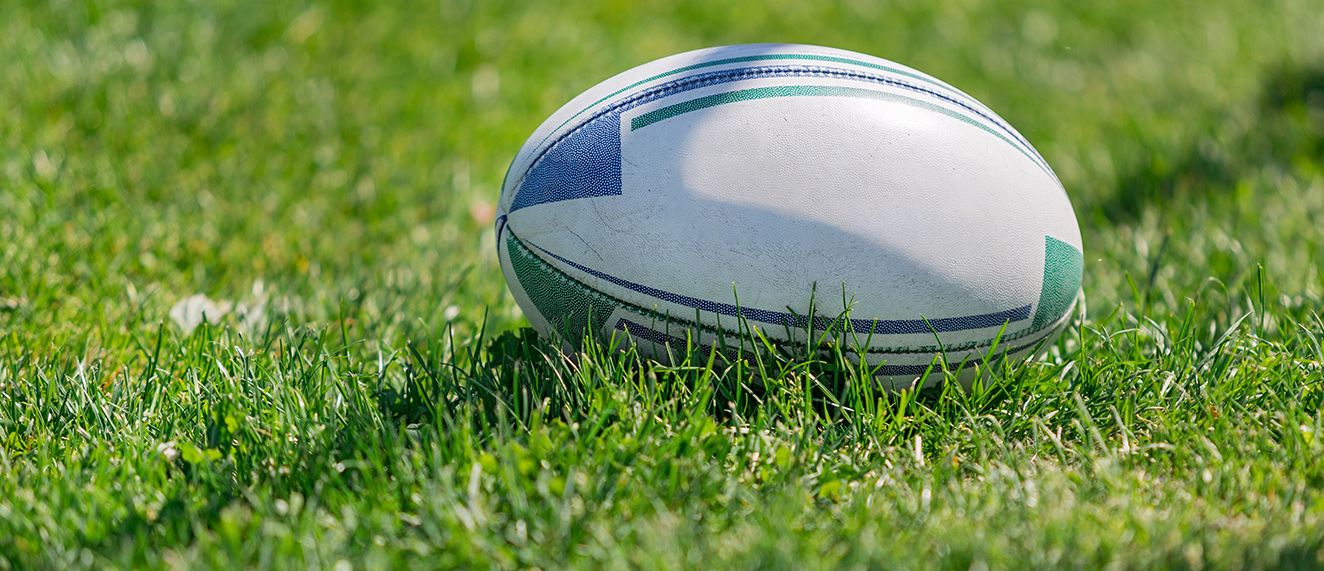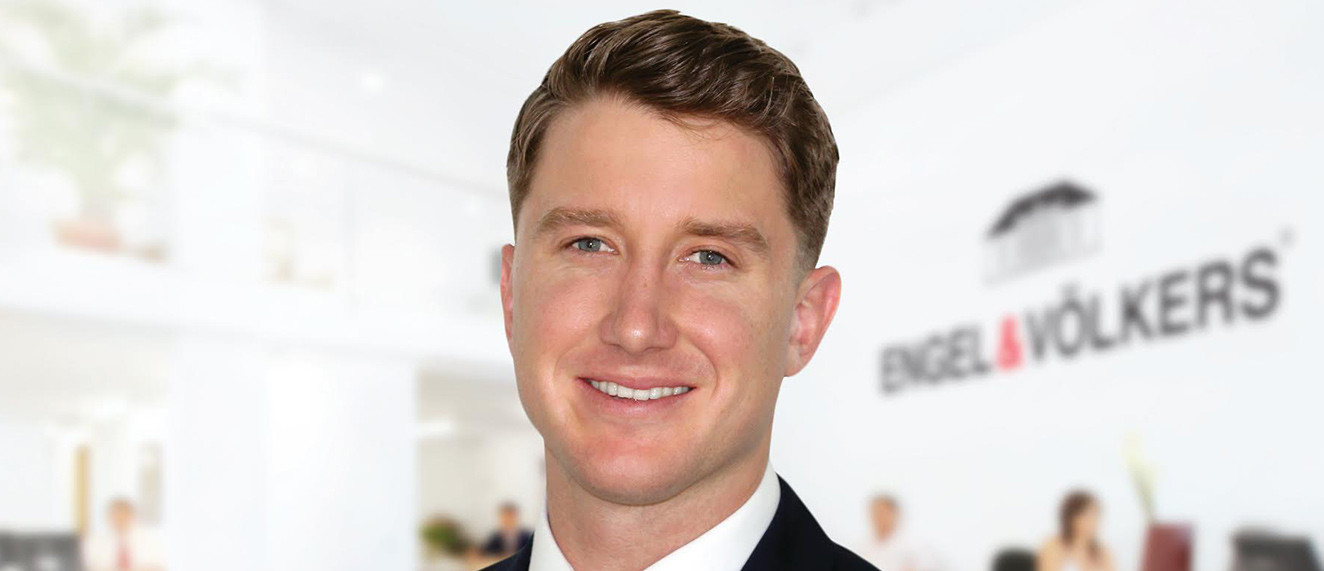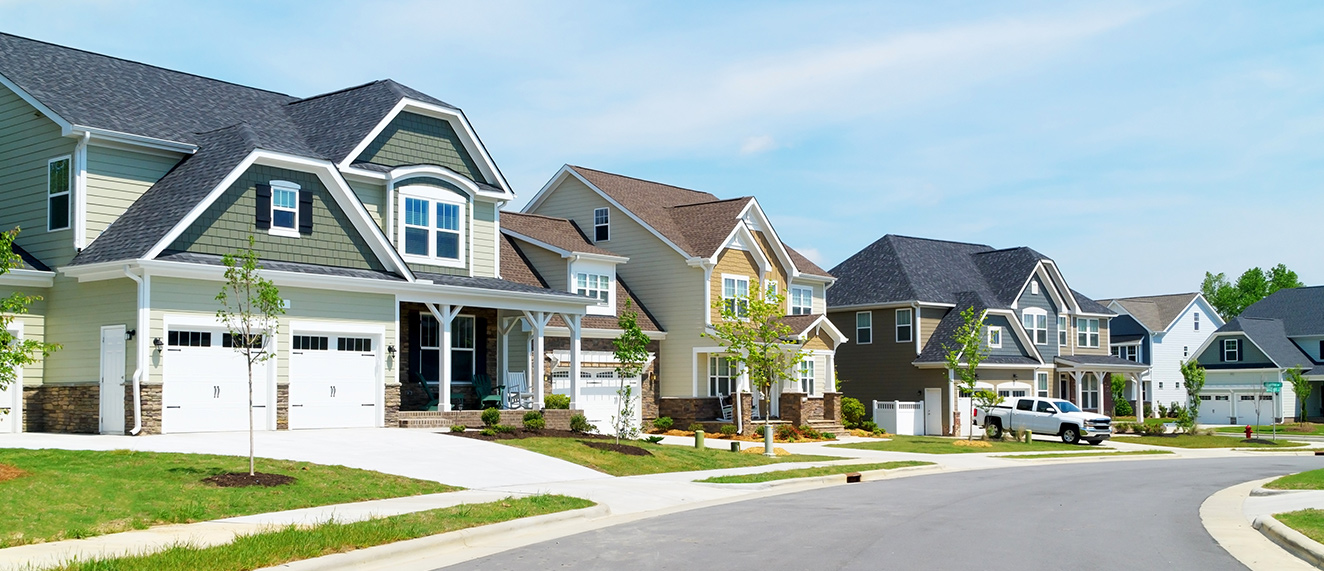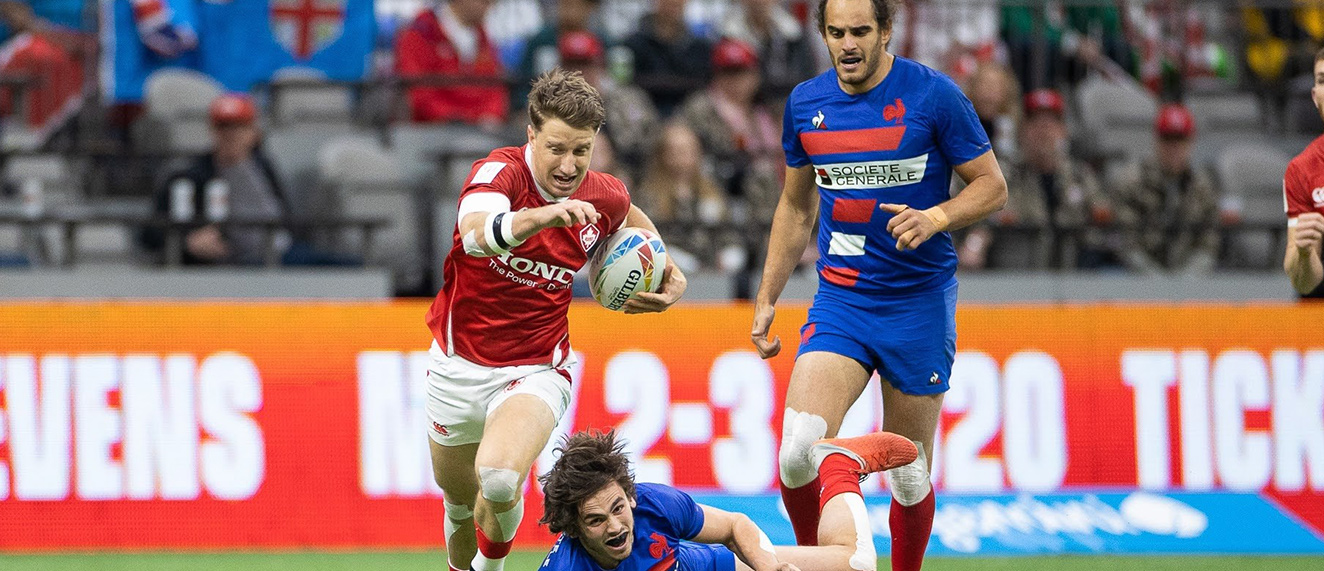Starting a real estate career in the middle of a global pandemic and frenzied housing market is challenging enough. Lucas Hammond did it while training for the Tokyo 2020 Olympic Games.
The 27-year-old Victoria, British Columbia resident made his Olympic debut in Tokyo this summer as a member of Canada’s rugby sevens team.
Stepping on to the field to play in his first Olympic game is a moment he’ll never forget.
“It was unbelievable. Regardless of the fact that no one was there [in the stands] and there were so many different protocols in place, it didn’t take away from the feeling of walking onto the field for the first time. It was amazing. It was years and years of hard work for that one moment. It was really special,” he said.
1️⃣ day until #Tokyo2020!
— Rugby Canada (@RugbyCanada) July 22, 2021
? Lucas Hammond
? Toronto, ON
? @TorontoNomads | @RugbyOntario
Go on, Lucas! #RugbyCA | @teamcanada pic.twitter.com/gtf36obJNl
Lifelong dream
Hammond started playing rugby when he was seven years old while living in South Africa (his parents were Canadian missionaries there at the time). He continued playing when his family moved to Toronto in his early teens. He remained dedicated to the sport, eventually moving to British Columbia to compete for the national team.
Hammond has represented Canada at the 2014 and 2018 Commonwealth Games, competed at the Toronto 2015 Pan American Games and played in the qualification tournament for the 2016 Rio Olympics (Canada came up short during this tournament and missed the rugby sevens’ Olympic debut).
“It’s always been in the back of my mind, going to the Olympics, but rugby [sevens] wasn’t always a part of the Olympics. [Rugby sevens] was just added in 2016,” he said.
The chance to play at the 2020 Olympics was even more special for Hammond, given the challenges he faced in the three years prior. The Canadian team qualified for Tokyo while Hammond was sidelined by injuries.
“It was getting to the point where I wasn’t sure if I was going to play again or not. I was told by a few people that I wouldn’t be playing ever again. That was in 2019, a year out from what we thought was going to be the Olympics,” he said.
He finally returned to the field injury-free in early 2020, competing in four tournaments before the COVID-19 pandemic paused all major sporting events.
The COVID-19 pandemic changed everything
When the pandemic first emerged, all training ceased, and Hammond started focusing on a new career in real estate.
He was already enrolled in the necessary courses before the pandemic, so when much of the country went into lockdown, he was able to dedicate more time to his studies.
He received his license last November and began balancing his rugby training with career building.
“Everyone knows when you’re starting out, it’s tough to get some traction going, and having rugby on top of that was definitely a little more work,” he said, noting working in real estate allowed him the flexibility to establish a schedule that worked for both sides of his life.
Hammond would wake up at 5 a.m., start training by 6 a.m., then switch gears at 11 a.m.
He’d change into his suit in the parking lot (locker rooms were closed due to COVID-19 restrictions) before going to meet clients. It ended up working out well since most of his clients had better availability in the afternoons and evenings.

Training for the Olympics
Due to public health restrictions, Hammond and his teammates spent much of the last 18 months training alone. Eventually they were able to train outside and in smaller groups at the gym, but it was much different than the regime they were used to.
As they inched closer to this summer’s competition, they switched their schedules to “Tokyo time” (staying up all night and sleeping during the day) to help their bodies adjust. They didn’t want to chance jetlag since their time there would be so short.
He was in the Olympic village for five days, competing on three of those. The team made it to the quarter final but was eliminated by New Zealand.
Life in Olympic village
Hammond’s time in the village was focused entirely on competition. He would just sleep, eat and play rugby. His down time was spent traveling to and from the stadium—about an hour’s drive.
The stadium was empty, but they did play some cheering sounds during the game.
“That was just as strange,” he laughed.
Hammond was just happy they were able to pull off the Olympics at all, despite the public health restrictions and safety protocols.
“It happened in the blink of an eye, but it was still a really cool experience. The village was amazing—just seeing so many other athletes, some that I’ve watched for years I was now standing behind them in line at the cafeteria. It was cool,” he said.

Future plans
Now that he’s back on Canadian soil, Hammond has hung up his cleats to focus on real estate full time—but he’s apprehensive to say goodbye to the sport forever.
He might not be playing rugby competitively but he’s still working on a team—a real estate team, that is.
He’s joined a team with fellow athlete-turned-real estate professional, Alex Carroll. Carroll was a wide receiver in the Canadian Football League before forming The Carroll Group. Hammond said being part of a team was important to him.
“I’ve always been on teams. My whole adult life I’ve been on this rugby team, so [being on a real estate team] has made the transition easier, but also more enjoyable,” he said. “It’s great to have found someone that I work well with, get along with. It’s also beneficial for our clients. If I can’t make it to a showing, he can fill in for me, or vice versa.”

First year in real estate
“I’ve learned so much in the first year. There’s only so much you can do to prepare without actually doing it,” he said. “The biggest takeaway is just trying to stay positive through this market. Every market is different but starting in a market that’s been so crazy and as hot as this one has been in Victoria, has taught me more than 10 years in a slower market could have.”
He said it’s been crucial to manage the expectations of his buyers by explaining the process every step of the way and staying positive if their offers aren’t accepted.
He was able to lean on skills he learned while playing sports, like not dwelling on negative things—be it losing a big game or facing rejection.
“In sports you deal with so many adversaries, so many ups and downs which, especially in this market, there’s a lot of that. It’s good to be able to deal with the downs and move on and stay positive. That’s what you have to do with rugby. If you have a bad game, you can’t dwell on it. You need to move on,” he said.
Working in real estate is hard work, but Hammond said he’s enjoyed every minute of it so far.
“Everything about the job I like. I like going to all the different properties and I also love helping people find exactly what they’re looking for,” he said.
Pay it forward
Playing competitive sports can be expensive. Hammond was fortunate throughout his career to receive sponsorships, which allowed him to continue pursuing rugby.
Many great players can’t advance in sports due to the high costs.
Hammond wants to pay it forward by sponsoring young athletes. He’s connected with local coaches and team managers to donate a portion of each of his sales to sponsor a youth rugby player in the community.




